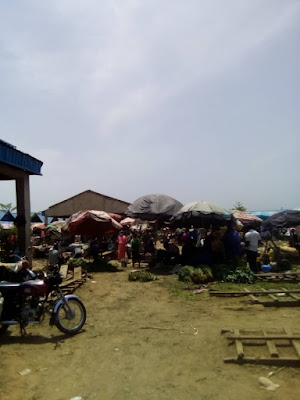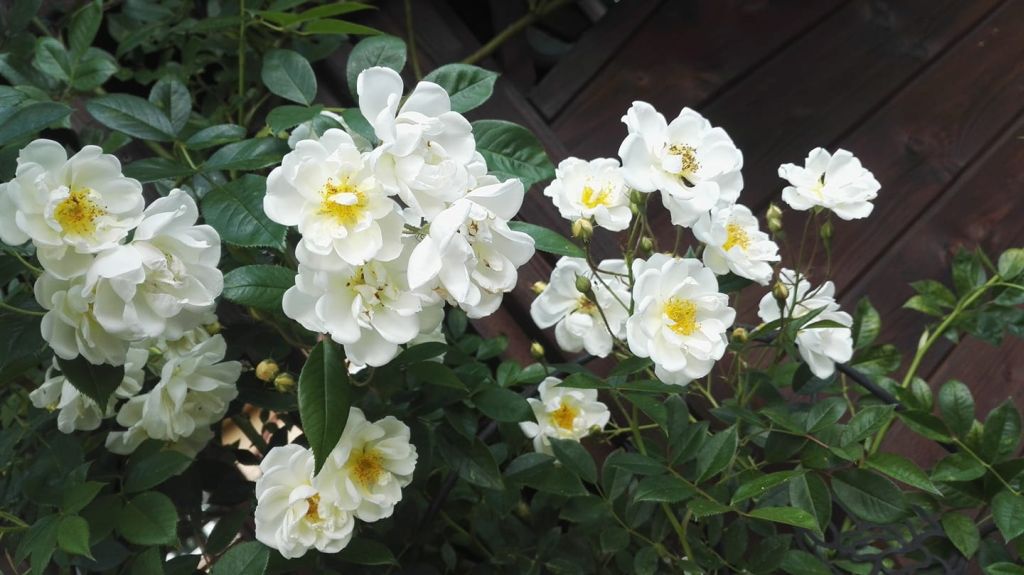We have little or no electricity supply here, no running water in the houses; we don't have money to buy food any more... Read more
There's the first version of the article which I wrote in English while talking with my interviewee. The Polish translation has been published HERE. The photos I sent to the wpolityce.pl have been marked with the note about denial of responsibility.
GMT-8:00
If you want to share the article on Facebook, click HERE
We have little or no electricity supply here, no running water in the houses; we don't have money to buy food any more. Many people are already starving. More and more gangs are looting houses. People are hungry and at the same time scared of being robbed of the little food in the homes -
– that’s what Light Obi-Ogbonnia told me about his experiences during the coronavirus lockdown.
Mr Light Obi-Ogbonnia is a businessman who lives and works in Abuja (approximately 4 million citizens), the capital city of Nigeria, which is the most populated African country (approx. 200 million people).
 |
| Mr Light Obi-Ogbonnia |
Cecylia Buczko: Tell me about the lockdown in Abuja.
Light Obi Ogbonnia: - The lockdown officially started on the 30th March 2020. The schools, kindergartens, churches and mosques were all closed. All forms of transport were banned. The streets which were usually crowded and noisy are now empty. The police are making regular enquiries as to why someone has left their home after all. All shops are now closed but street markets are open on Wednesdays and Saturdays. Actually, any social distance doesn't exist on these days. It seems like we had have five days of total lockdown and two days off. Every Wednesday and Saturday the markets are extremely busy and crowded – this is the only opportunity people have to buy food and groceries. The police try to maintain law and order, but sometimes there’s conflict with angry people who are desperate due to being hungry and thirsty.
 |
| The street market in Abuja |
How then do people commute to work?
- Unfortunately, no one here is now working except people who are employed in essential services, e.g. health workers, police, utility workers etc. Sometimes thy will have to walk for several hours on foot to their place of work due to being no public transport these days. The majority of people including myself have to sit at home knowing that we will not get paid during this pandemic. Suddenly we have all lost our jobs. We don't get any paid from the government. Try to imagine that... your savings are running out and some people are already starving as they had no savings. If the pandemic doesn't kill them, hunger will.
It's also difficult for us. Many companies have gone bankrupt and a lot of people have lost their jobs.
- Recently I was in Warsaw and I fell in love with Poland, you are a modern country. Many of you can work from home (online). Unfortunately it’s not possible here in Nigeria. The information technology level is very low, with limited internet access. We just stay home throughout the day doing nothing. Our children suffer the most. They can’t understand why daddy and mommy suddenly stopped going to work, why the schools are shut, why they can’t go out and meet friends and why there’s no electricity to watch TV.
 |
| The street market in Abuja |
Polish children learn online from homes. To tell you the truth, they dream of holidays because such learning system is difficult. What do Nigerian children long for?
- Sometimes Nigerian children would love to watch TV, but they are happy if there’s something to eat for dinner and some water to drink. But that’s not always possbile. We have little or no electricity supply here, no running water in the houses; we don't have money to buy food any more. Many people are already starving. More and more gangs are looting houses. People are hungry and at the same time scared of being robbed of the little food in the homes.
What about the healthcare?
- The real tragedy is when people get sick - many of them die of negligence, some can’t even be taken to hospital because there’s no public ambulances. Unlike in Poland and other developed countries where you can call the ambulance for emergency. Sick people in Nigeria are conveyed to hospital by using public transport, but it is not working at the moment. There has never been any ambulance service for the public – can you imagine that? You can use your private car, if you can afford to have one. But it is still very difficult because of the movement restrictions. So, those who manage to get to hospital often get there too late. Doctors and nurses are now afraid to attend to their patients for the fear of coronavirus…
 |
| The street market in Abuja |
How do people cope with such difficult situations?
- Imagine living without electricity in a very hot country where the temperature is about 39`C… It’s hell. I know you can’t even imagine this. No food, no water and no electricity. The few privileged people have electricity generators, so they can charge their devices and sometimes let the kids watch the television, but only for those who can afford to buy the fuel for the generator. Unfortunately, most people have been cut off from the world - they live without any communication with the outside world because of no electricity and no internet. Sometimes people are covering their windows to stop sunlight shining into their homes. How long can people sit in this twilight.
Why don’t you have any electricity now? Is this a temporary situation?
- To add to the hardship, the few hours of electricity supply we received (sometimes 2-3 hours in a day) was recently cut off by the government. This made time unbearable during the lockdown. The power company went from house to house disconnecting and cutting off the electric cables running into our homes – we have it mounted on the facades of the buildings. They physically cut the cables so that they cannot be reconnected.
Why has such an authorative solution been chosen?
- People are classified into two groups here, the very rich citizens, of course they are equally the most corrupt and mostly of the political class, and the common masses. Those who are the most corrupt and powerful do enjoy an extremely high standard of living. They have electricity while the rest stay in total darkness. Moreover, the government has assumed that the citizens can't afford to have any electricity now. How would people pay their energy bills when they don't have any job and have no source of making any income now? They have spent their last savings on food and water.
Why don’t you have any water now? Mind you, during a pandemic there is a need for constant washing your hands.
 |
| The water reservoir |
Why don’t you have any water now? Mind you, during a pandemic there is a need for constant washing your hands.
- The government had never laid any water pipes in this area of Abuja. Individuals have dug boreholes in their compounds or you must buy water in kegs at exorbitant prices. However, now it is so difficult to buy water. That’s why I am worried about the peoples’ level of hygiene at this time of coronavirus. Poor hygiene increases the spread of the virus. Do you think they will wash their hands if they have no water to drink? How long will the lockdown last? People are already desperate and anxious to return to the streets again. They are simply afraid that they will die from either Covid-19 or hunger.
Surely there are some social allowances for people.
- No! There is no single social support from the government here in Abuja. We’ve only heard that the government is providing social support to people, but we have never seen one beneficiary, none. A few weeks ago we heard about “the rain of bread” in Lagos State - where bread was falling from the sky in the streets of Lagos (making joke of the ridiculous social support the government gave to Lagos residents), a loaf of bread to be shared among four houses. However, as you would expect, it only has made people feel more and more bitter.
 |
| The street market in Abuja |
It’s so easy to crack now in the face of the lockdown in Nigeria.
- Yes. We would rather take the risk of getting Covid-19 than die from starvation and deydration. But we will not give up so quickly. We are tough people.
The first confirmed coronavirus case was announced on February the 27th 2020 in Lagos, when an Italian citizen was tested positive for the virus. Currently, the virus is very active here despite living in a very hot climate, theoretically it shouldn’t be so contagious. Until May the 6th 2020, 2950 cases have been conformed in Nigeria, of which 93 people have died and 419 have recovered.
 |
| The street market in Abuja |
If you want to share the article on Facebook, click HERE
Written by: Cecylia Buczko
 |
| Cecylia Buczko |
The Polish version of the interview has been published here:
WYWIAD. Relacja prosto z Nigerii! Afrykański biznesmen o tragicznej sytuacji w Abudży: "Wielu od pewnego czasu przymiera głodem"


